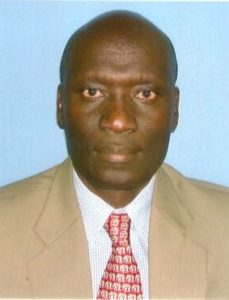Conference Speakers
Dr Washington Otieno
Plantwise Programme Executive at the Centre for Agriculture and Biosciences International (CABI)
 Washington Otieno is the Plantwise Programme Executive at CABI. Prior to joining CABI, he was a consultant for phytosanitary capacity development at the International Plant Protection Convention (IPPC) (2011-2013), Agricultural Biotechnology Adviser with USAID-Kenya (2011), General Manager at Kenya Plant Health Inspectorate Service (KEPHIS) (2005-2010) and research scientist at the Tea Research Foundation of Kenya (1992-2005). Washington Otieno is the Plantwise Programme Executive at CABI. Prior to joining CABI, he was a consultant for phytosanitary capacity development at the International Plant Protection Convention (IPPC) (2011-2013), Agricultural Biotechnology Adviser with USAID-Kenya (2011), General Manager at Kenya Plant Health Inspectorate Service (KEPHIS) (2005-2010) and research scientist at the Tea Research Foundation of Kenya (1992-2005).
At KEPHIS, he led managed phytosanitary services and trade matters and was involved in sanitary and phytosanitry (SPS) capacity evaluation and development at national and regional levels. He represented Kenya at meetings of the WTO-SPS Committee and the IPPC between 2006 and 2010, and served as a developing country representative in working groups and policy committees of the STDF (2009–2011).
Since March 2013, he has led the coordination of Plantwise implementation in Africa. He holds Bachelor and Master Degrees in Agriculture and Plant Pathology from the University of Nairobi, and a PhD from Wageningen University.

Abstract
Strengthening plant health systems by building capacity to manage existing and emerging pests requires innovative approaches in agricultural advisory services. Plantwise, a global programme led by CABI, delivers improved agricultural advice through networks of plant clinics supported by a knowledge bank (an open access gateway to online and offline plant health information). Plantwise is increasingly deploying ICT tools to ensure correct pest diagnoses and appropriate recommendations to farmers.
Together with partners, CABI is deploying SIM-equipped android tablets to enable real time capture of pest data and instant access to information that supports diagnosis and pest management advice. These tools enable ‘plant doctors’ to use the Factsheet Library app to access 10,000 factsheets on 4,000 plants and 2,500 pests. The tablets also allow ‘plant doctors’ to communicate via instant messaging services. At plant clinics, relevant data are logged online to enable CABI and partners to monitor the quality of recommendations, ensure that they are accurate and comply with best practice. Plant clinic data is instantly uploaded onto the Plantwise Online Management System where plant protection agencies can use it to track pest occurrences.
Critical components of Plantwise include the use of ICT in training ‘plant doctors’, the back-up from CABI’s knowledge bases, the use of the evidence of impact of the interventions on crop losses as an indicator of potential to improve food security and farmer livelihoods, and the application of lessons learnt to improve the interventions. All of these are highly relevant to CABI’s overall objectives that contribute to the UN’s Sustainable Development Goals 2 and 17. This paper presents Plantwise as an innovation to reduce pre-harvest crop losses.
Key words: ICT tools, knowledge bank, plant clinic, plant doctor, plant health systems.
|



 Washington Otieno is the Plantwise Programme Executive at CABI. Prior to joining CABI, he was a consultant for phytosanitary capacity development at the International Plant Protection Convention (IPPC) (2011-2013), Agricultural Biotechnology Adviser with USAID-Kenya (2011), General Manager at Kenya Plant Health Inspectorate Service (KEPHIS) (2005-2010) and research scientist at the Tea Research Foundation of Kenya (1992-2005).
Washington Otieno is the Plantwise Programme Executive at CABI. Prior to joining CABI, he was a consultant for phytosanitary capacity development at the International Plant Protection Convention (IPPC) (2011-2013), Agricultural Biotechnology Adviser with USAID-Kenya (2011), General Manager at Kenya Plant Health Inspectorate Service (KEPHIS) (2005-2010) and research scientist at the Tea Research Foundation of Kenya (1992-2005).